10 easy decor hacks to rethink your interiors on a budget
An interior design expert reveals the ways we can restyle and improve our homes
If you're looking to revamp your home, it's important to know the basic rules of interior design before you get started. The fundamental basic elements such as proportions and deciding the best size furniture for each room is key. And there are simple, best decor tips and tricks to make the most of any small space.
Related: 10 genius ways to clean bathrooms using this £1 store cupboard essential
Interior design expert Sabina Miller, Head of Buying at Heal’s, shares her back to basics interior design rules to help rethink your home decor. Here are 10 top tips for transforming interiors with minimal effort.
1. Give your furniture space
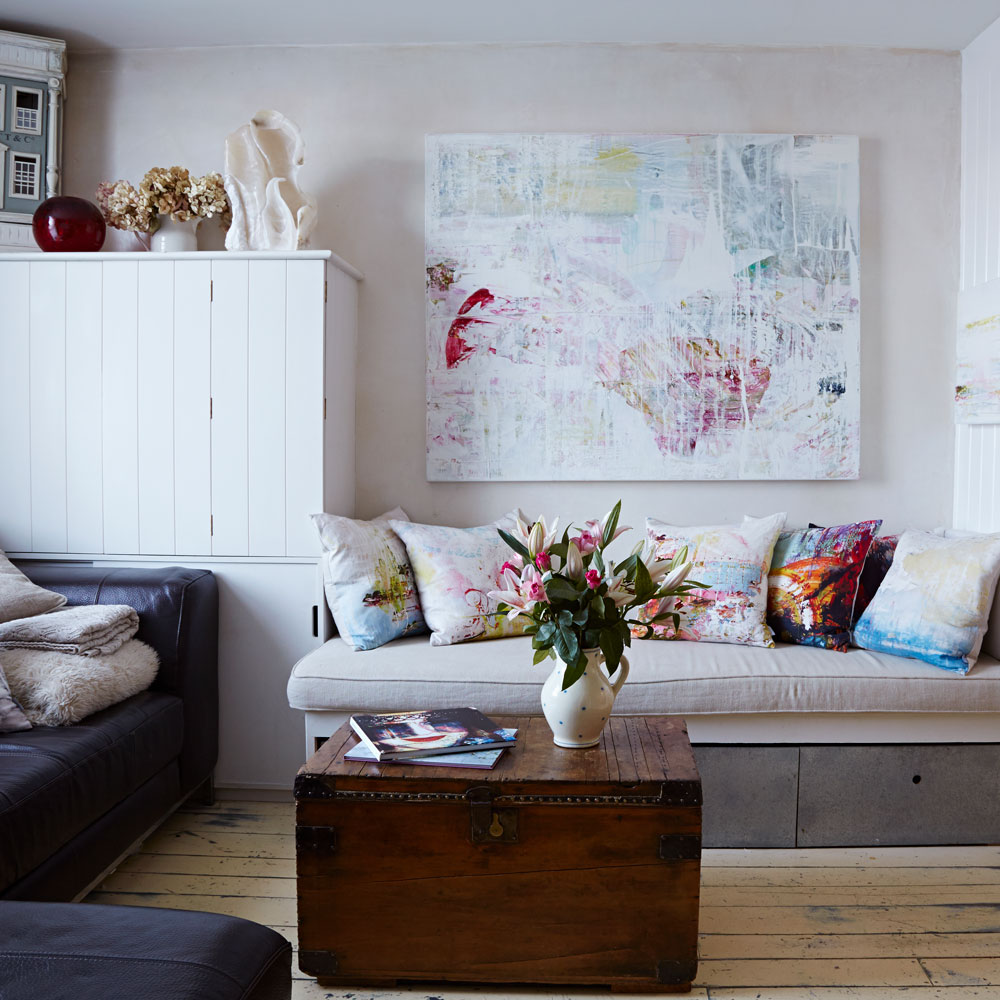
A fundamental decor tip is to move sofas away from walls, but also try moving them away from other key furniture pieces. As a rule of thumb, allow 45cm between seating and a central coffee table. Any less than this can feel like a squeeze, but too much more can prove uncomfortable when reaching for a drink or book.
When it comes to buying a coffee table Sabina says, 'When you’re choosing the coffee table itself, make sure it doesn’t overpower the room. The proportions are right when the table is about two thirds of the length of the sofa.'
2. Choose one statement hero piece
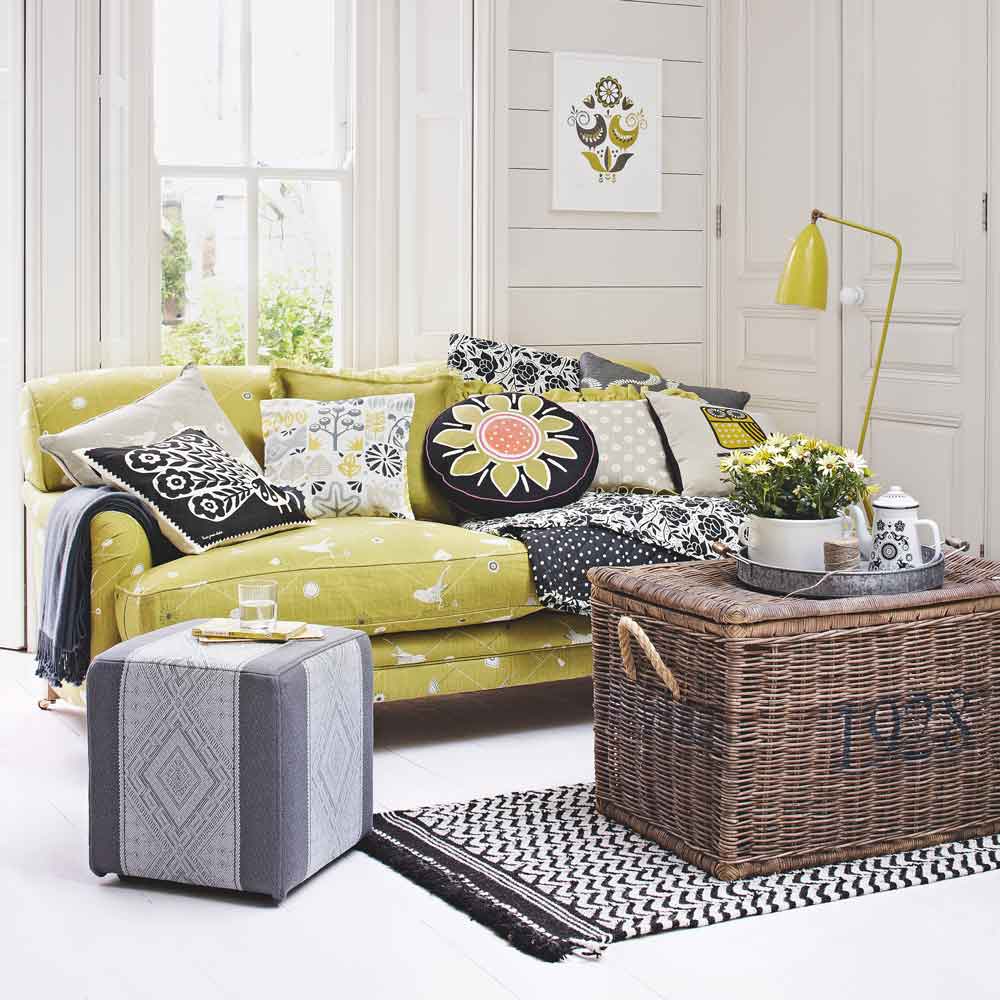
Allow one piece to dominate in every room, to make it feel more impactful. This might be an oversized piece of furniture in a bold colour or a patterned rug. Or perhaps a wow work of art or a feature wall.
Whatever it may be, Sabina says, 'Your hero piece is designed to steal the limelight'. Going on to advise, 'If your stage-stealing piece is a bold colour, try using hints of it elsewhere for a cohesive look.'
Get the Ideal Home Newsletter
Sign up to our newsletter for style and decor inspiration, house makeovers, project advice and more.
3. Fake height
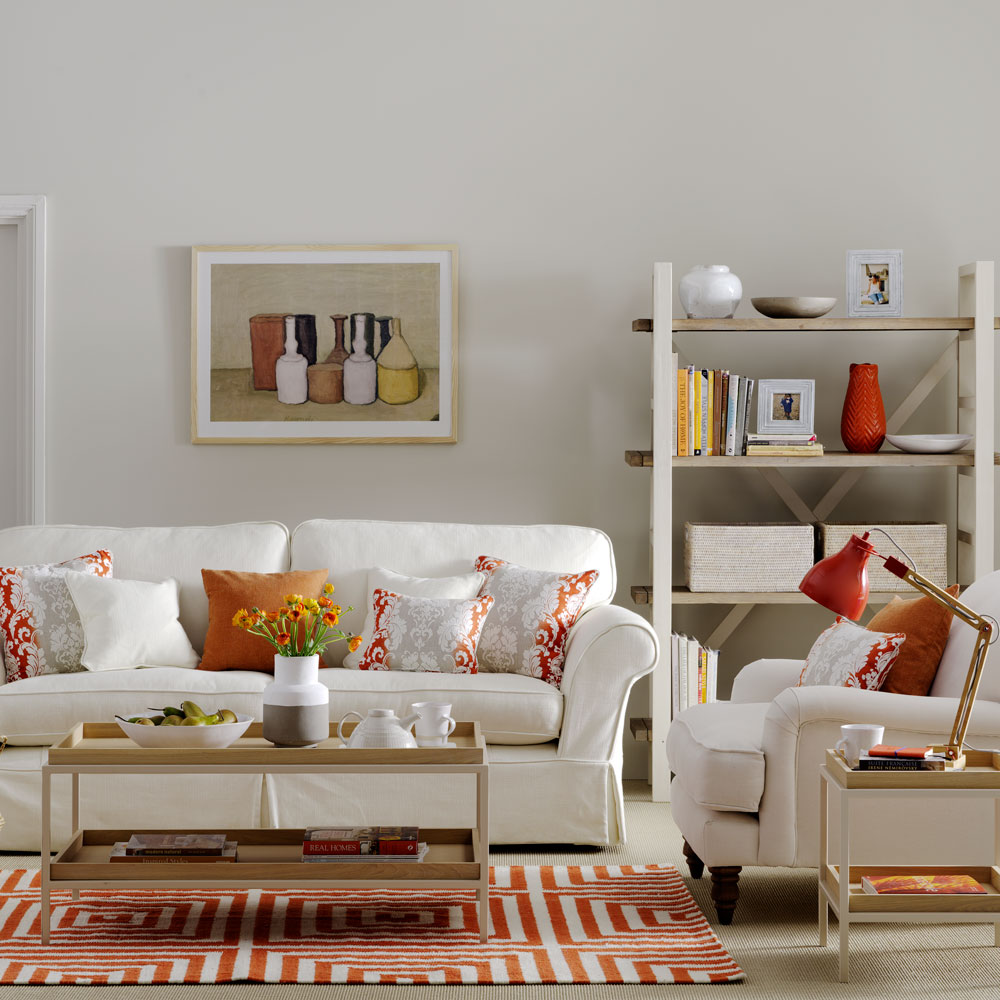
Low ceilings? Choose low-profile furniture such as sofas and coffee tables to create the illusion of room height. You can also create the illusion of height with lower profile furniture mixed with tall, slim bookshelves that draw the eye upwards. Mixing different heights in this way will also create a relaxed atmosphere in your home.
'To create an illusion of more space, paint the walls, skirting boards and ceiling in the same colour' is Sabina's top tip. 'This will blur the lines of where the walls end and the ceiling begins.'
4. Pile on the layers
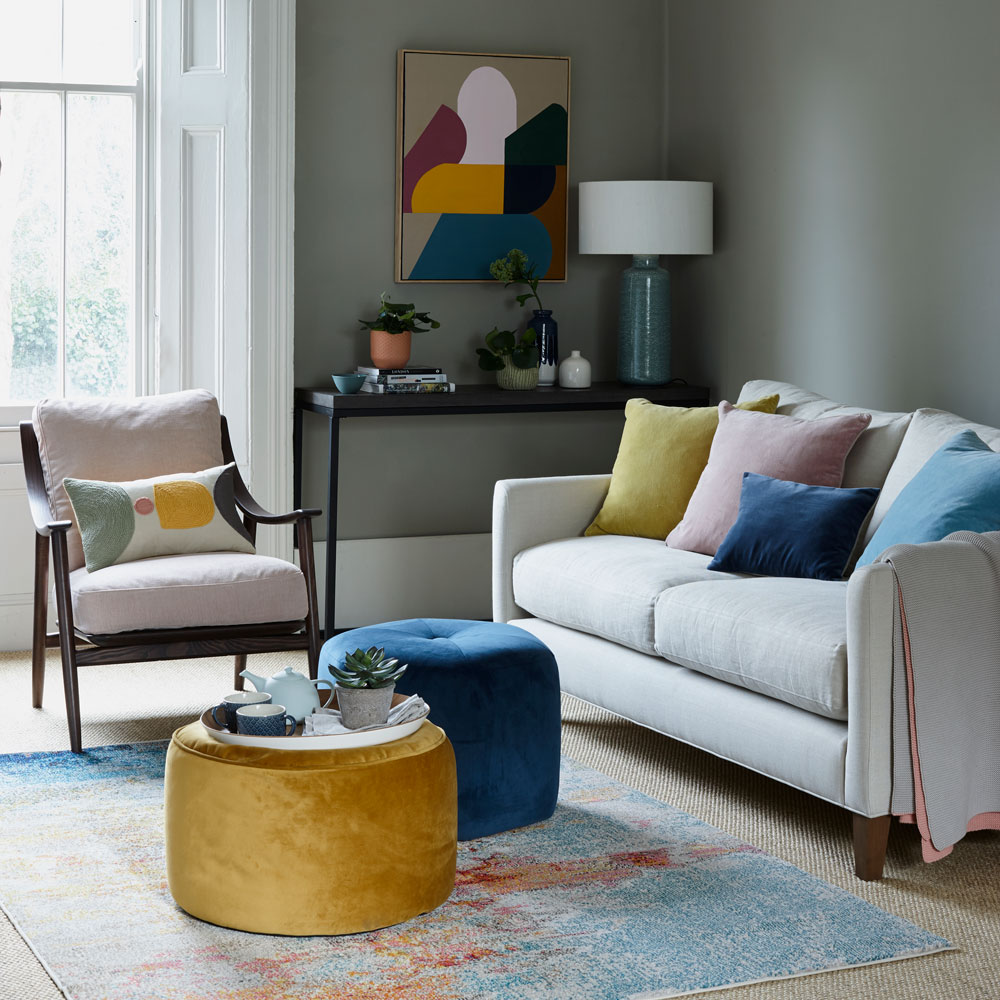
You can ever have too many layers to continuously add to a look. 'Layered quite simply means the art of combining a range of fabrics, prints, colours and textures in a manner that brings character and warmth to a room' Sabina explains.
'Layers allow a house to feel lived in and homely. Find one dominant fabric initially, perhaps the curtains or rug. Then start layering by adding smaller-scale fabrics for cushions and lampshades.'
Think of your decor in terms of layers to be built up – such as colour; pattern; texture; lighting; artwork; house plants and books.
5. Hang artwork at the perfect height
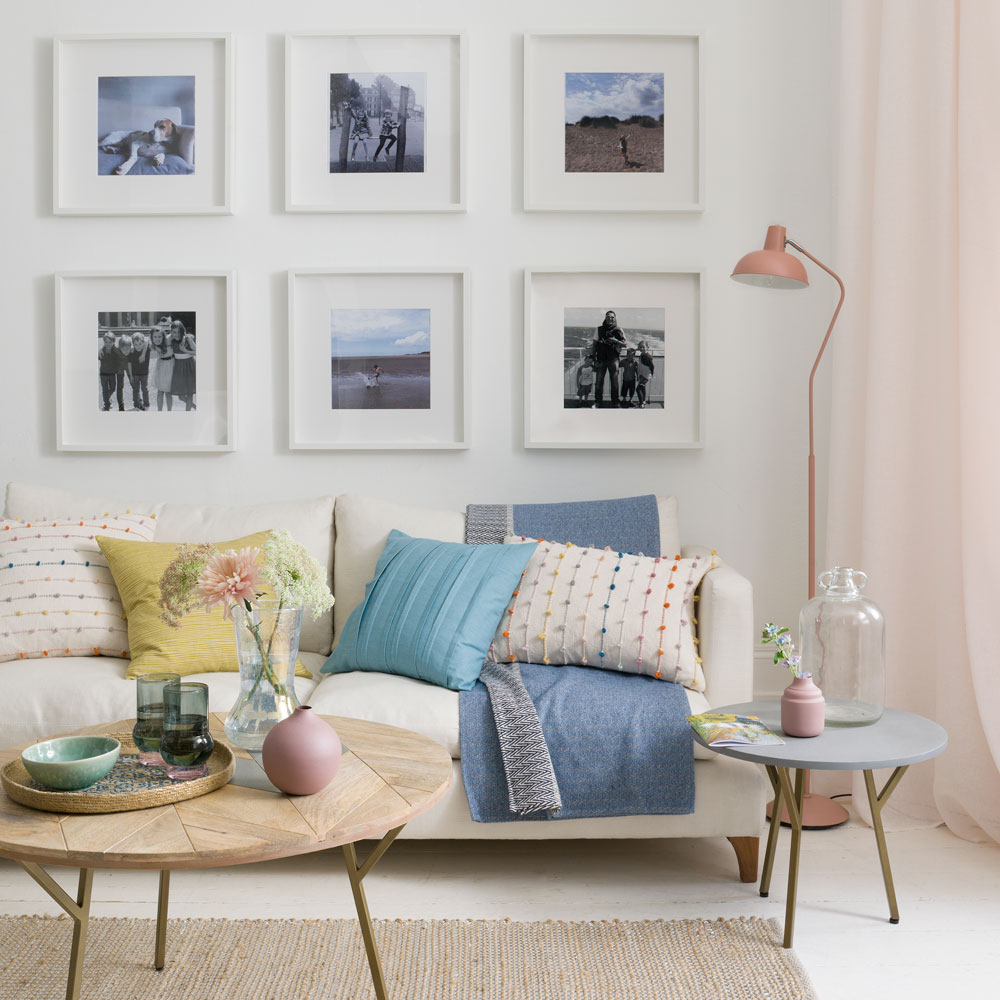
A key interior design rule for hanging pictures and paintings is not to position them too high. Remember to give them a human scale. So the perfect height is at eye level, which is approximately 145cm from the floor to the centre of the picture.
'There are exceptions, if you have a favourite, smaller picture, try hanging it above a side table or next to a lamp, which will give it a more intimate feeling' says Sabina .'If you are hanging a gallery wall, the main picture should be hung at eye level, with the others arranged in relation to it.'
6. Add more mirrors for a view beyond
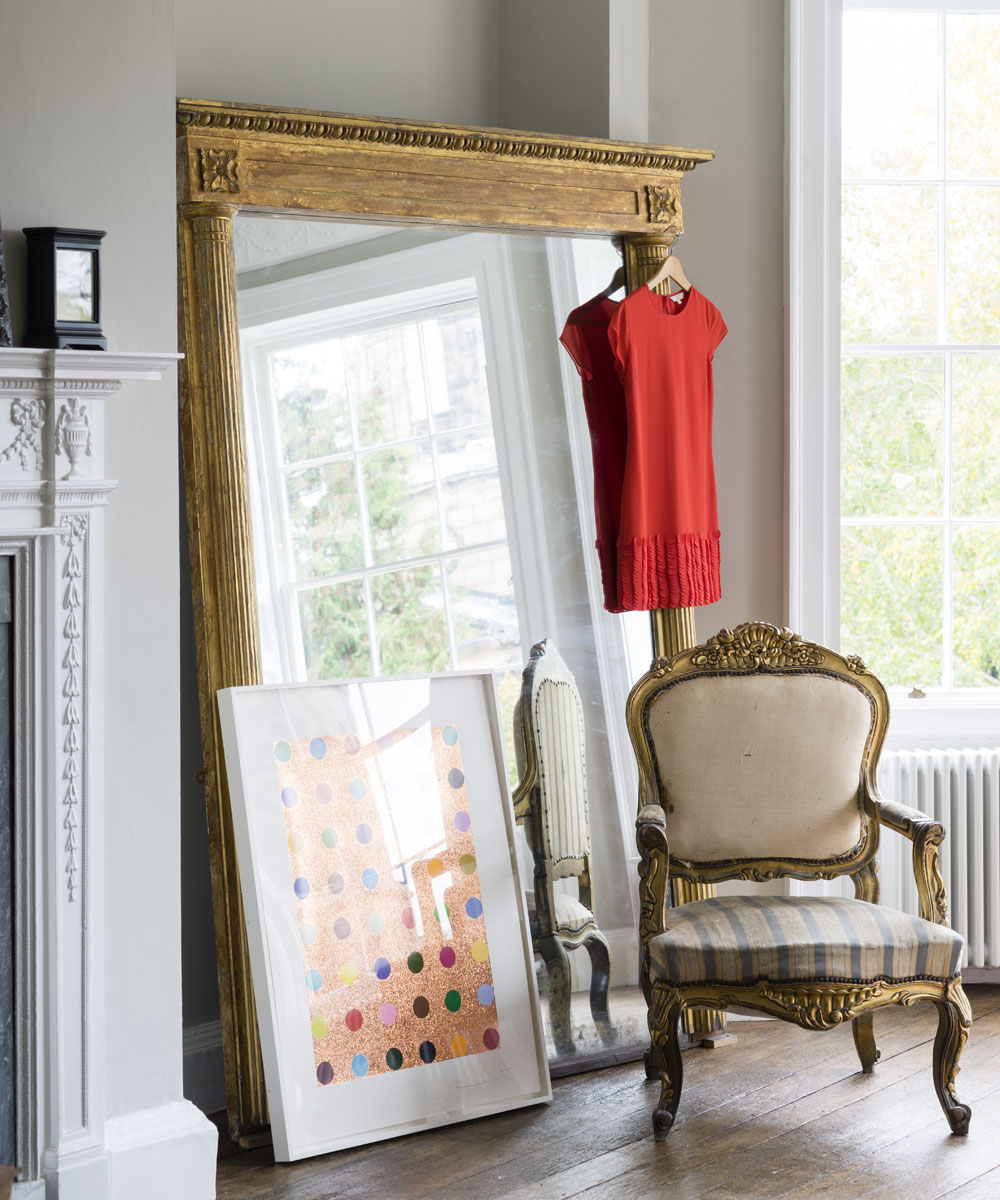
Create space with a new view point. It's no new revelation that mirrors help to add light and depth to a room. But what is a new take is the fact they can reflect views, and in so they can visually expand a space.
7. Create scale with lighting
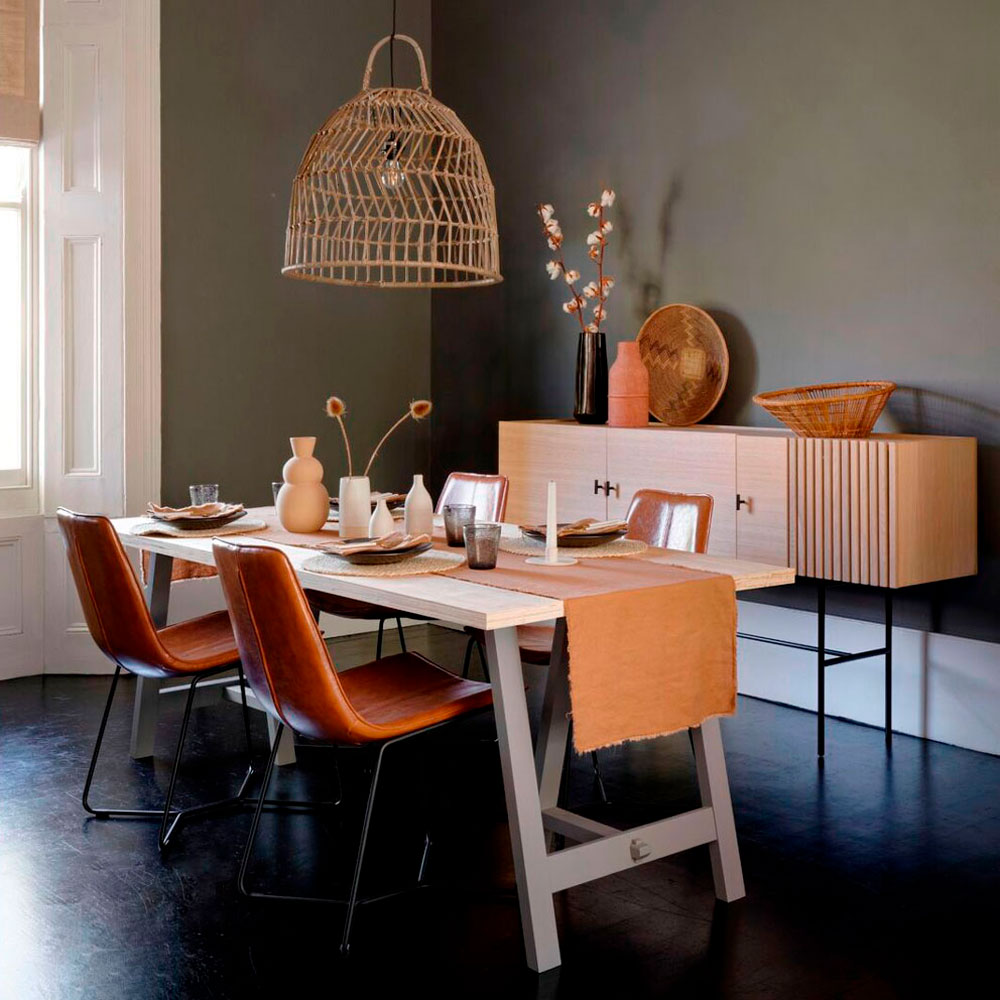
Have a light bulb moment when considering lighting. When choosing a pendant or chandelier to hang above a dining table, aim for a fitting that is between half and two-thirds of the width of the table. This will ensure everything is in proportion.
'The same rule can be applied to long, slim light fittings, by maintaining the same half-to-two-thirds ratio, but applying it to the table’s length, the light fitting will be a harmonious part of the room' Sabina comments.
8. Dress your windows
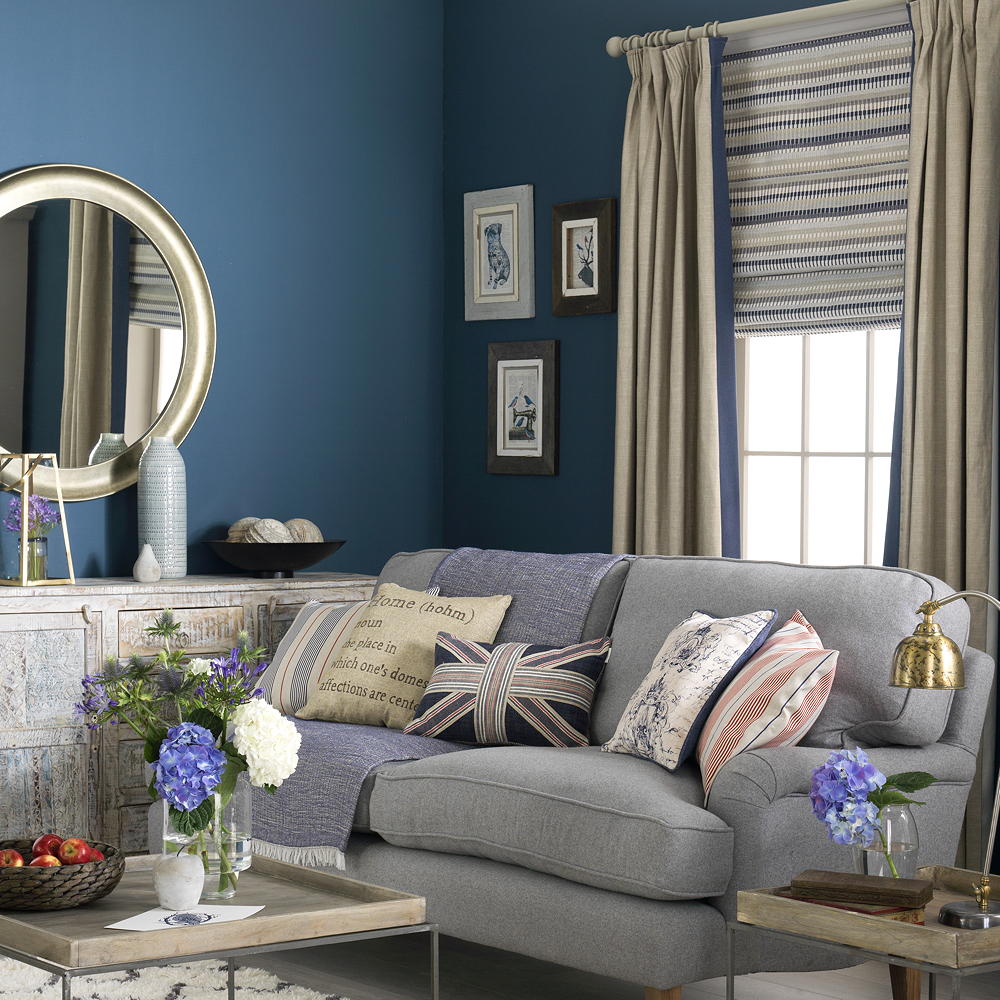
Measure up for the perfect window dressings. 'If you have a small window, give the illusion of something much larger by setting your curtains outside the edge of the window to frame it' advises Sabina.
'Taking curtains all the way across a whole wall will give a room softness and a feeling of space. Don’t be afraid to go floor to ceiling either, short curtains will make your room look odd. If long curtains don't suit the room, then go for a relaxed roman blind to give a window some casual elegant dressings.'
9. Mix up shapes
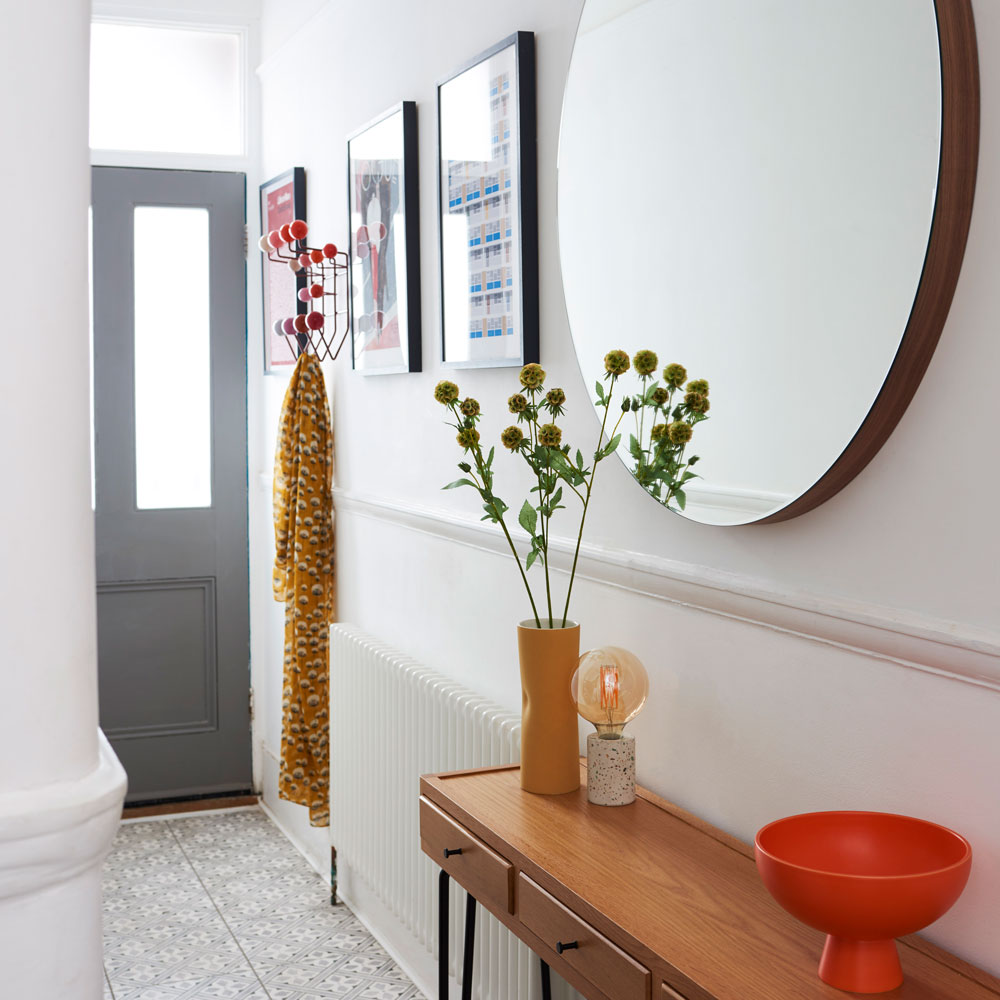
If your room is looking like it has lots of lines and right angles, think about adding different shapes to balance things out and soften the 'bulky' elements. On-trend circles are a good shape to throw into the mix. Be it a round coffee table, a pair of round side tables or a round rug – the options are limitless.
'A round mirror is a great way to break up all those squares and rectangles in a living room' Sabina explains, 'as well as straight tile lines in a bathroom. Go as big as you can. Large-scale mirrors make a real statement and can visually enhance the sense of space in smaller rooms.'
10. Take a step back
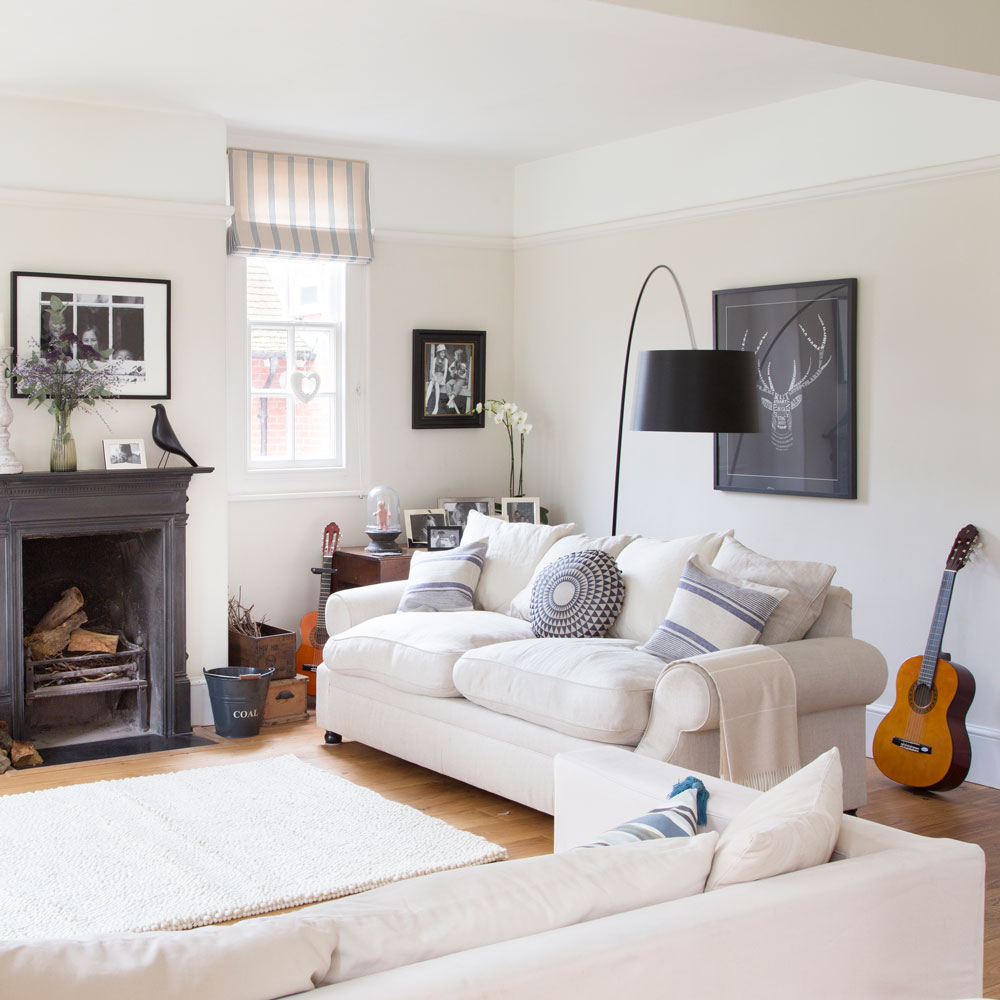
Step back to reflect on the whole room. 'All interior designers will tell you that viewing a room from a distance often makes it easier to see what needs to be added, replaced or removed' advises Sabina. 'Whether that is the empty wall that needs to be filled, the wall that needs a splash of colour or the corner that’s crying out for a luscious plant.'
Which of the 10 steps will you be turning to first for your next decorating project?
Tamara was Ideal Home's Digital Editor before joining the Woman & Home team in 2022. She has spent the last 15 years working with the style teams at Country Homes & Interiors and Ideal Home, both now at Future PLC. It’s with these award wining interiors teams that she's honed her skills and passion for shopping, styling and writing. Tamara is always ahead of the curve when it comes to interiors trends – and is great at seeking out designer dupes on the high street.
-
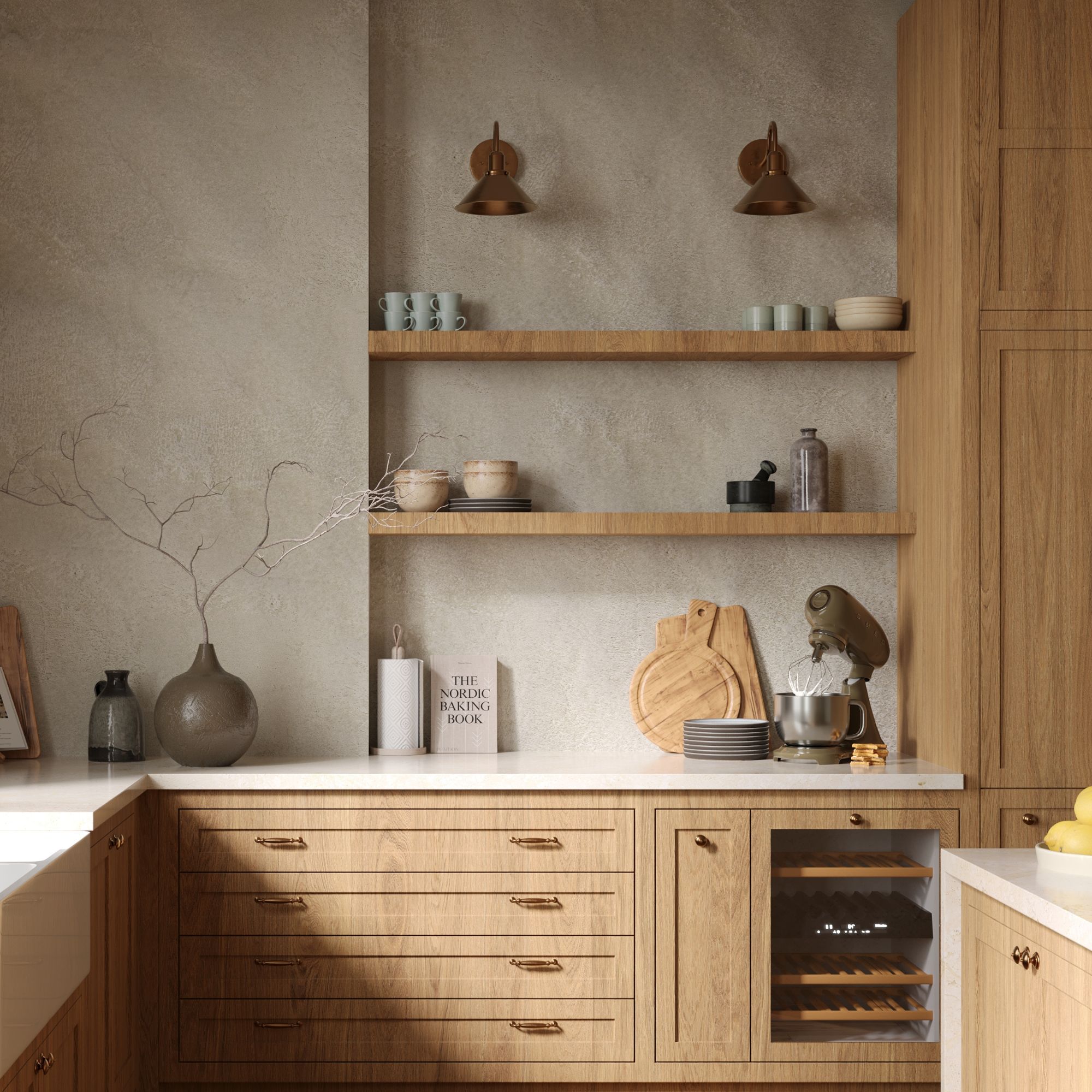 Wood drenching is the calming new twist on the colour drenching trend – here’s how to make the look work in your home
Wood drenching is the calming new twist on the colour drenching trend – here’s how to make the look work in your homeIt’s easier than ever to embrace natural materials
By Maddie Balcombe
-
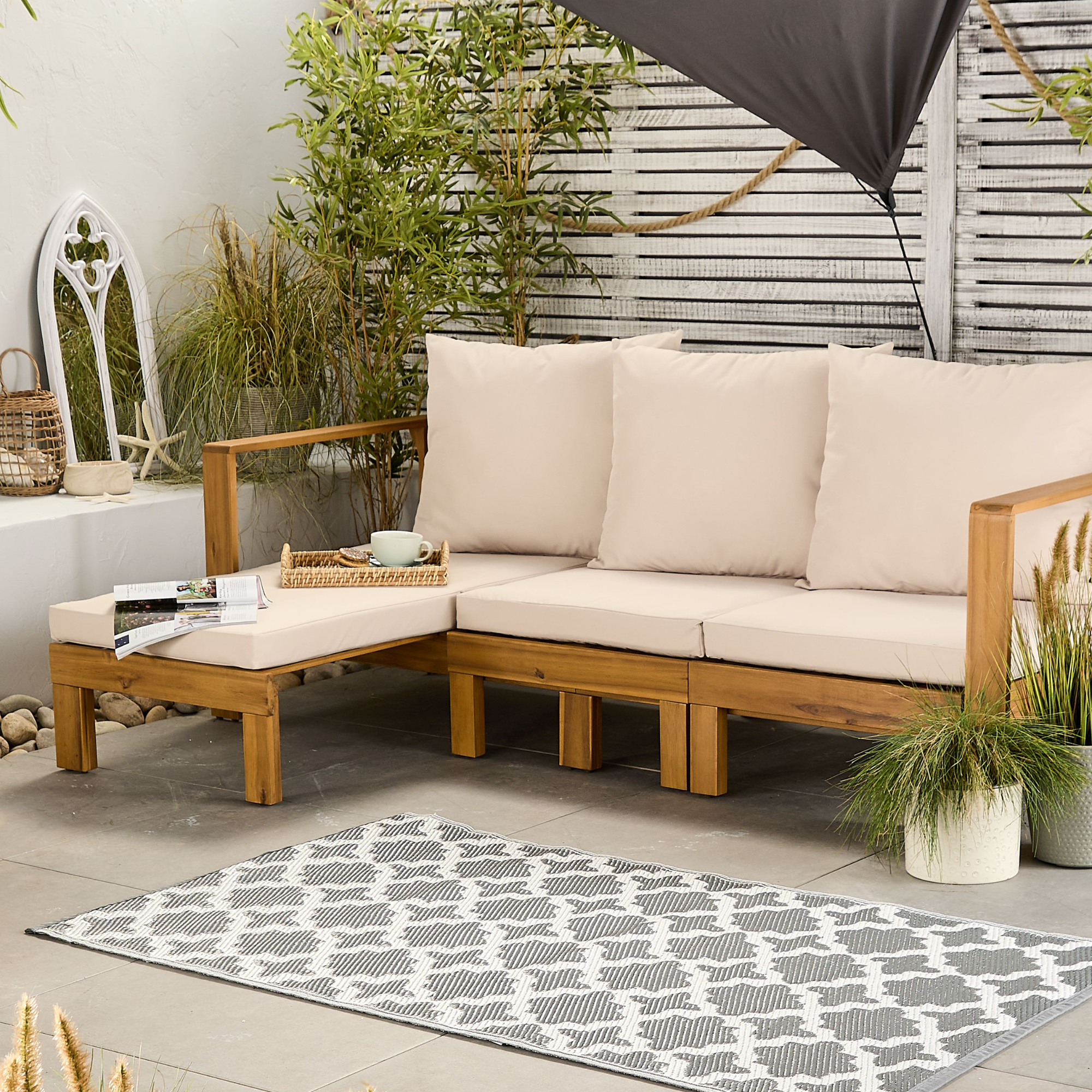 Aldi is launching a £200 day bed with four different features - its sleek design is suited to the whole family
Aldi is launching a £200 day bed with four different features - its sleek design is suited to the whole familyYou don't want to miss out on this Specialbuy
By Kezia Reynolds
-
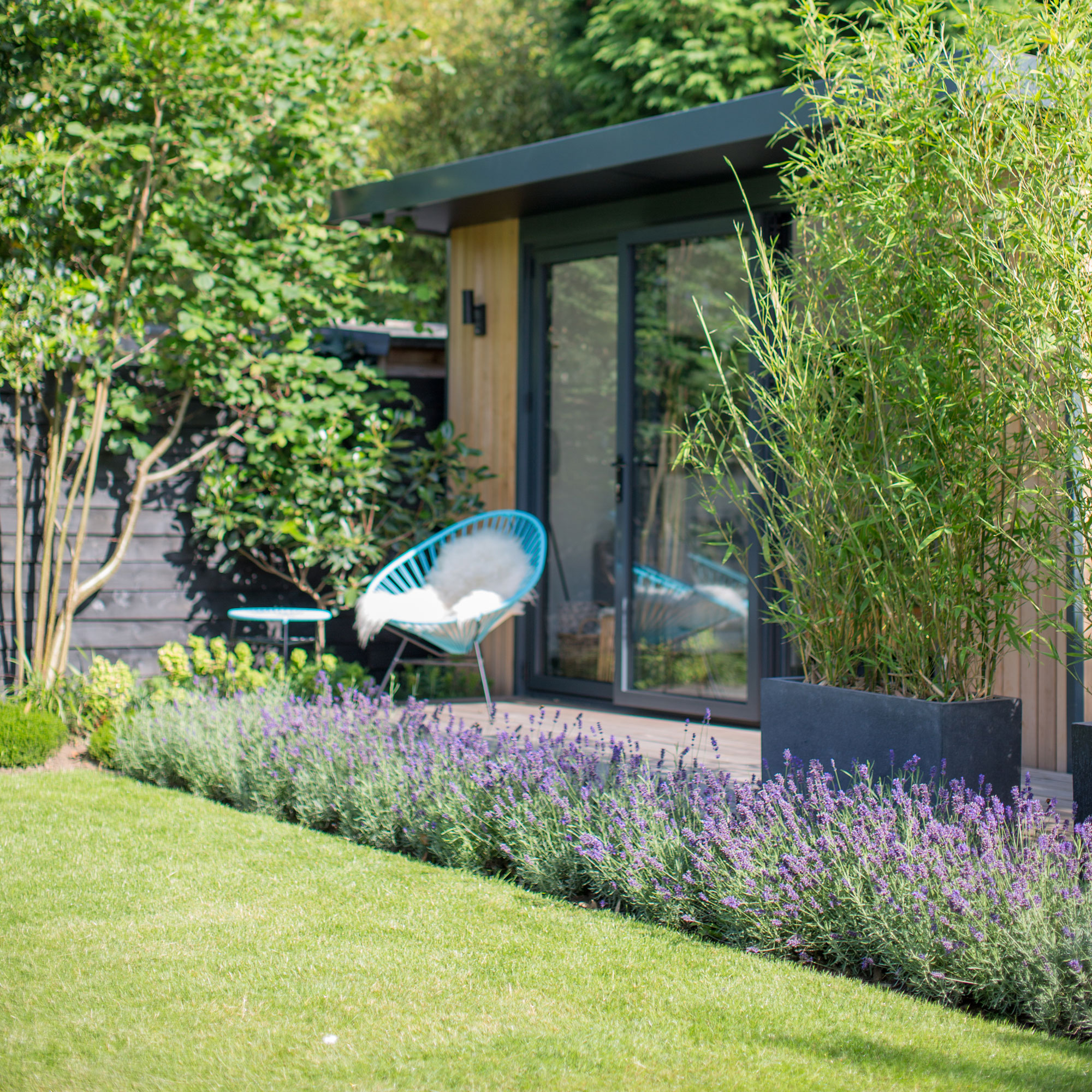 How to set up a drip watering system that saves water and a lot of effort
How to set up a drip watering system that saves water and a lot of effortKeep your plants hydrated (and your water bill down) with this clever garden watering solution
By Natalie Osborn